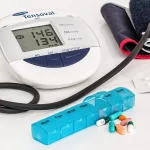Mental health affects every aspect of our lives. It affects how we think, feel, and act. It makes us better people, too. But it’s not easy to live with a mental health condition. For some people, it’s overwhelming and difficult to cope with the challenges that come with it. Fortunately, there are steps you can take to help improve your mental wellbeing. They include identifying your triggers, learning self-care skills, developing a support system, and understanding what works for you in order to reach your goals. Read on for more tips on how to improve mental well-being! Following are the 9 Tips for Improving Your Mental Health.
Identify Your Triggers
If you’re feeling frustrated, disappointed, or anxious, your triggers could be the cause. It’s important to pinpoint what causes you to feel that way in order to help yourself cope accordingly.
Take Care of Yourself
It’s easy to forget how important it is to take care of yourself when you’re struggling with mental health issues. A healthy diet, exercise, and relaxation are all important coping skills that can help relieve stress and improve mood.
Develop a Support System
Having a support system can make it easier for you to reach your goals. Studies show that people who have an informal support group have higher chances of success than those who don’t have one. So find someone who cares about you and get connected with them!
Understand What Works for You
Don’t be afraid to try new things that may not work for others. You’ll know what works best for you by trying them out and seeing if they work well in your life. Try changing things up from time-to-time too–for instance, if meditation doesn’t work well for you, try other activities like yoga or taking a walk outside instead. **5: Learn Self-Care Skills
In addition to practicing self-care physically, it’s important to practice self-care mentally as well. This includes learning how to cope with negative thoughts and emotions as well as staying positive throughout the day and maintaining the same.
Identify your triggers
When you have a mental health condition, it’s easier to identify your triggers. Traits that come with a mental illness are often obvious and easy to spot. Sometimes, you may see them in others, too. For example, someone who is manic might be constantly talking or acting without thinking about the consequences of their actions. Even if these traits don’t apply to you right now, learning what they are can help you become more aware of yourself and your reactions.
Develop self-care skills
Self-care is an important part of mental health. It’s easy to get caught up in the day-to-day, which can easily become overwhelming. You’ll want to make sure to take time out of your day for self-care. This can be as simple as doing something you enjoy or taking some time for yourself at the end of the day that helps you relax and recharge. In order to stay mentally healthy and prevent a breakdown, you’ll need to practice self-care often.
Build a strong support system
Building a strong support system is an important way to help improve your mental health. Having someone you know that you can talk to about your feelings and struggles is helpful when things get tough. Sometimes, it’s hard for us to reach out for help because we just don’t want to burden others with our problems. But a lot of people are willing to listen and genuinely care about you–you just have to ask. There are plenty of resources available, too. The National Eating Disorders Association (NEDA) has a free 12-week online course called In the Mind of an Eating Disorder: What You Need To Know About What’s Happening in Your Brain that teaches students about the symptoms of eating disorders and how they can be prevented. Another resource is NEDA’s website which has information on their upcoming events, research studies, and more.
Prioritize your goals
It’s common to have a lot of different goals in your life. But when you’re struggling with mental health, it can be difficult to focus on the goal that matters most. You need to identify what is important and make it a priority. That might mean only taking one step at a time or focusing on one goal at a time.
If you’re trying to improve your mental well-being, the most important thing is identifying what works for you in order to reach your goals. If you were juggling several different things every day, it would be hard for any of them to become successful endeavors. So try prioritizing and focusing on one goal at a time so you can succeed!
Know what works for you.
One of the most important things you can do to improve your mental health is to figure out what works for you. Everyone’s mental health is different and there’s no one-size-fits-all approach to figuring out what will work. You may need more self-care, or you might be looking for a more structured routine. Whatever the case, it’s important that you figure out what works best for you so that you can stick with it.
Think about your triggers.
Triggers are often the difficult moments that trigger a negative mental health episode or other bad feelings in people with a mental health condition. It’s not always easy to identify something as a trigger, but it might be an event in your life, like losing your job or going through a breakup. Some things that may trigger someone include stress from work, frustration from school, or simply being alone at night when they’re struggling emotionally. You should pay attention to these triggers so that you can avoid them when possible and try to get some relief from them in other ways whenever possible.
Takeaways
There are a number of strategies you can use to improve your mental health and well-being. The following tips can help you get started and take action. To enjoy the benefits of a healthy and happy life, it’s important to focus on our health and well-being.












